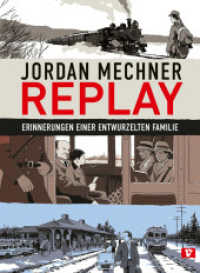Full Description
This book sets out duoethnography as a method of research, reflective practice and as a pedagogical approach in English Language Teaching (ELT). The book provides an introduction to the history of duoethnography and lays out its theoretical foundations. The chapters then address duoethnography as a research method which can be used to explore critical and personal issues among ELT teachers, discuss how duoethnography as a reflective practice can aid teachers in understanding themselves, their colleagues or their context, and demonstrate how duoethnography can be used as a pedagogical tool in ELT classrooms. The chapters are a range of duoethnographies from established and emerging researchers and teachers, which explore the interplay between cultural discourses and life histories with a focus on ELT in Japan.
Contents
Richard D. Sawyer: Foreword
Chapter 1. Luke Lawrence and Robert J. Lowe: An Introduction to Duoethnography
Part 1: Duoethnography for ELT Research
Chapter 2. Daniel Hooper, Momoko Oka and Aya Yamazawa: Not all Eikaiwas (or Instructors) are Created Equal: A Trioethnography of 'Native Speaker' and 'Non-Native Speaker' Perspectives on English Conversation Schools in Japan
Chapter 3. Yuzuko Nagashima and Chris Hunter: Critical ELT in Japan: A Duoethnographic Exploration of Origins, Identities, Obstacles, and Concerns
Chapter 4. Richard Pinner and Ema Ushioda: Personalisation and Professionalism: Managing the Relationship between Teacher and Learner as People
Part 2: Duoethnography for Reflection and Teacher Education
Chapter 5. Ben Smart and Charles Cook: Professional Development through Duoethnography: Reflecting on Dialogues between an Experienced and Novice Teacher
Chapter 6. Nick Kasparek and Matthew W. Turner: Puzzling about Special Educational Needs in EFL Teacher Development: A Duoethnographic Inquiry
Chapter 7. Matthew Schaefer and Peter Brereton: Developing Understandings of Reflective Practice and Teacher Training
Part 3: Duoethnography for Language Teaching
Chapter 8. Robert J. Lowe and Luke Lawrence: Duoethnography in the Language Class
Chapter 9. Robert J. Lowe: Language Development though Duoethnographic Peer Interaction
Chapter 10. Luke Lawrence: Collaboration and Cohesion: Using Duoethnography to Enhance Group Dynamics and Pair Relationship Building in a University Speaking Class






